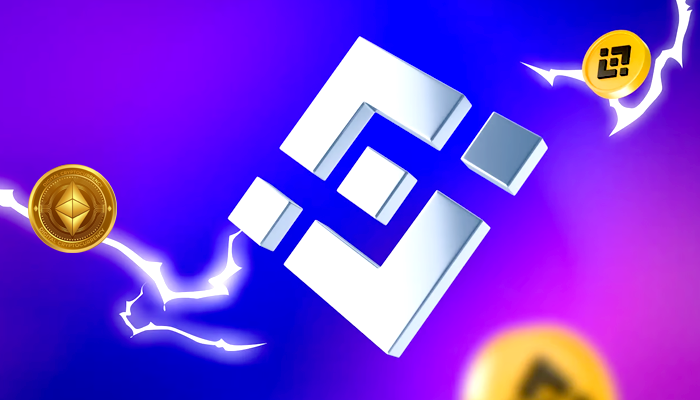Creating a custom token opens up a range of opportunities, from raising capital and enhancing loyalty programs to powering decentralized applications (dApps). However, with multiple token standards available—such as ERC-20, BEP-20, and TRC-20—selecting the best one is crucial for your project’s success. Each standard has unique features tailored to specific blockchain environments, impacting compatibility, security, and transaction efficiency.
In this guide, we’ll explore the most popular token standards, their key benefits, and how to choose the best one for your needs.
What Are Token Standards?
Token standards define how tokens function on a blockchain, ensuring they are interoperable with wallets, exchanges, and decentralized applications (dApps). By following a standard, developers can create tokens that seamlessly integrate with the existing ecosystem. Some of the most widely used token standards include:
- ERC-20 (Ethereum) – The leading standard for fungible tokens.
- BEP-20 (Binance Smart Chain) – Optimized for lower transaction costs and faster speeds.
- ERC-721 & ERC-1155 (Ethereum & Binance Smart Chain) – Standards for non-fungible tokens (NFTs).
- TRC-20 (TRON) – Known for its high-speed transactions and low fees.
- SPL (Solana) – Designed for scalability and ultra-low transaction costs.
Now, let’s break down each token standard to help you determine the right fit for your project.
ERC-20: The Ethereum Standard for Fungible Tokens
Overview
ERC-20 is the most widely used token standard on Ethereum, enabling seamless interactions between tokens and smart contracts. It is commonly used for initial coin offerings (ICOs), utility tokens, and governance tokens.
Benefits
- High Security – Built on Ethereum’s robust, decentralized infrastructure.
- Extensive Developer Support – A well-established ecosystem with vast development resources.
- DeFi Integration – ERC-20 tokens are widely accepted across decentralized finance (DeFi) applications.
Drawbacks
- High Gas Fees – Transaction costs can be expensive during network congestion.
- Scalability Issues – Limited transaction throughput compared to newer blockchain solutions.
Best For
ERC-20 is ideal for projects aiming to leverage Ethereum’s extensive ecosystem, especially in DeFi and governance-based applications.
BEP-20: The Binance Smart Chain Alternative
Overview
BEP-20 is Binance Smart Chain’s (BSC) equivalent to ERC-20, offering similar functionalities but with lower fees and faster transaction speeds. It is widely used in DeFi, gaming, and high-volume transactions.
Benefits
- Low Transaction Fees – More cost-effective than Ethereum.
- Cross-Chain Compatibility – BEP-20 tokens can be swapped with ERC-20 tokens via Binance Bridge.
- Growing DeFi Adoption – Integrated into platforms like PancakeSwap and Venus.
Drawbacks
- Centralization Concerns – BSC is more centralized than Ethereum.
- Smaller Developer Community – Although expanding, it is not as mature as Ethereum’s ecosystem.
Best For
If your project prioritizes low-cost, fast transactions while maintaining compatibility with Ethereum, BEP-20 is a great choice.
ERC-721 & ERC-1155: The NFT Standards
Overview
ERC-721 and ERC-1155 define non-fungible tokens (NFTs) on Ethereum and Binance Smart Chain. ERC-721 is designed for unique digital assets, while ERC-1155 allows the creation of both fungible and non-fungible tokens within a single contract.
Benefits
- Ideal for NFTs – Supports digital collectibles, gaming assets, and unique tokens.
- Ethereum Ecosystem Integration – Ensures compatibility with NFT marketplaces like OpenSea.
Drawbacks
- High Gas Fees – Transactions can be costly due to Ethereum’s congestion.
Best For
These standards are ideal for NFT projects, including digital art, virtual real estate, and in-game assets.
TRC-20: TRON’s High-Speed Token Standard
Overview
TRC-20 is TRON’s answer to ERC-20, offering similar functionality but with faster transactions and lower costs.
Benefits
- Low Fees – Ideal for cost-sensitive applications.
- High Transaction Speed – Capable of handling thousands of transactions per second.
Drawbacks
- Limited DeFi Adoption – Smaller DeFi ecosystem compared to Ethereum and Binance Smart Chain.
Best For
TRC-20 is perfect for projects requiring high-speed, low-cost transactions, especially in micropayments and entertainment sectors.
SPL: Solana’s Scalable Token Standard
Overview
SPL tokens operate on Solana, a blockchain known for its ultra-fast transactions and scalability. It is gaining traction in DeFi and gaming applications.
Benefits
- Low Transaction Costs – A fraction of Ethereum’s gas fees.
- High Scalability – Capable of processing thousands of transactions per second.
Drawbacks
- Newer Ecosystem – Fewer integrations compared to Ethereum and Binance Smart Chain.
Best For
SPL is ideal for projects that need a scalable, low-cost blockchain, especially in gaming and real-time applications.
How to Choose the Right Token Standard
To select the best token standard, consider the following:
- Transaction Speed & Cost – Choose BEP-20, TRC-20, or SPL for lower fees and faster speeds.
- Security & Decentralization – ERC-20 offers the highest security, albeit at a higher cost.
- Ecosystem & Adoption – ERC-20 and BEP-20 have the strongest DeFi integrations.
- NFT Needs – ERC-721 and ERC-1155 are the best choices for digital collectibles and gaming.
Simplify Token Creation with DeployTokens.com
DeployTokens.com makes token creation seamless, supporting major standards like ERC-20, BEP-20, TRC-20, and SPL. With our user-friendly interface and streamlined deployment process, you can launch your token efficiently without technical complexities.
Choosing the right token standard is a critical step in your blockchain journey. With DeployTokens.com, you have the tools and expertise to launch and manage your token successfully.
Start your token creation journey today with DeployTokens.com!
